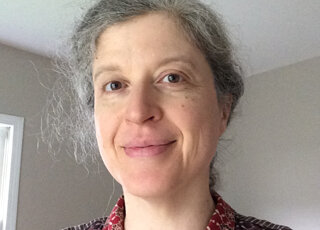
Psychology
At Bennington, students work closely with faculty to design the content, structure, and sequence of their study and practice—their Plan—taking advantage of resources inside and outside the classroom to pursue their work.
Psychology is more than the study of the mind and its effect on behavior; it also demands a nuanced understanding of the scope and limits of theories and other generalizations of human behavior. At Bennington, some psychology courses focus on understanding the generalizations made by others, while other courses focus on the process of research, where students make their own generalizations about human behavior. In both cases, students learn to read, understand, and critically evaluate published work in psychology. They develop the skills to write a convincing, non-prejudicial argument. And they learn how to apply ethical standards to research and theory in psychology.
Because of the interdisciplinary nature of students' individual academic plans, Bennington students often apply their psychological studies in fascinating ways: using clinical psychology to inform painting or poetry, or using work in social psychology to inform documentary film-making or biology. We have sent curious and well-trained scholars into the world, and we find they are often ready to do original work in a variety of settings. The solid foundations and disciplined and independent habits of inquiry we provide serve our students well in their post-college careers.
Current Courses
Looking, Perceiving, and Attending
Anne GilmanTrends in Adolescent Mental Health
Emily WatermanPsychology of Gender and Sexuality
Arita Balaram
Faculty
Emily Waterman is an applied developmental scientist who aims to promote youth development through mixed-method research and evaluation.
Visiting Faculty & Technicians

Anne Gilman employs behavioral, big-data, and electrophysiological methods to track the impact of long-term expertise on fast-acting cognitive processes. Her research on musical training and language expertise as influences on memory informs the design of multimedia displays.
